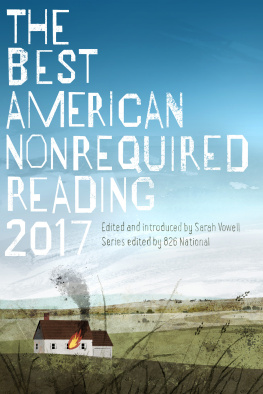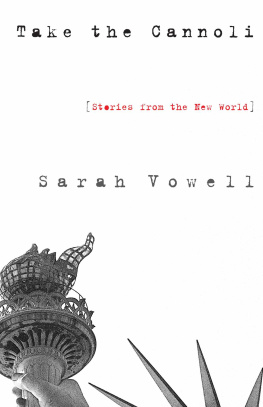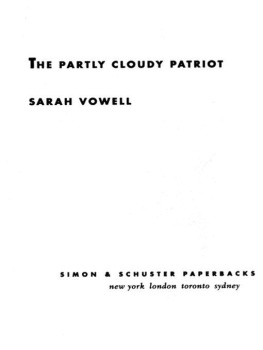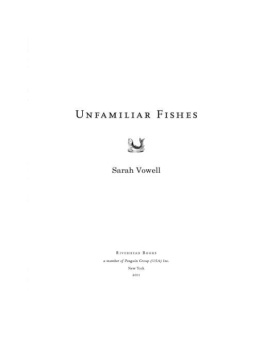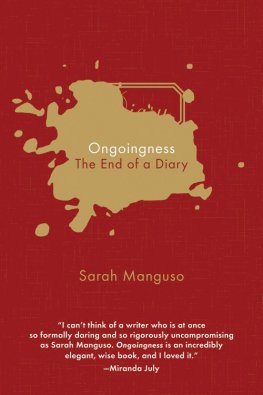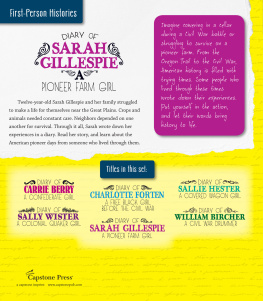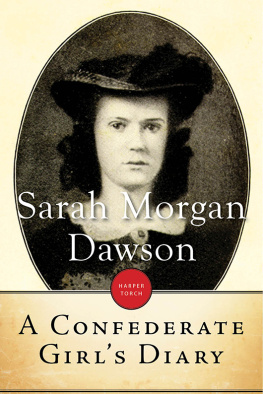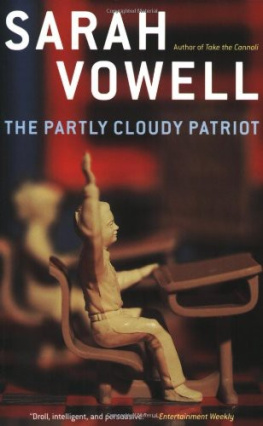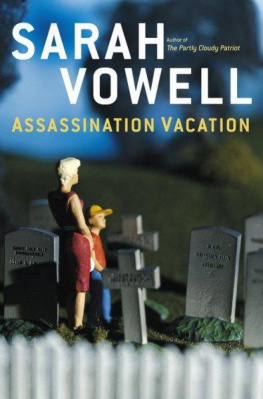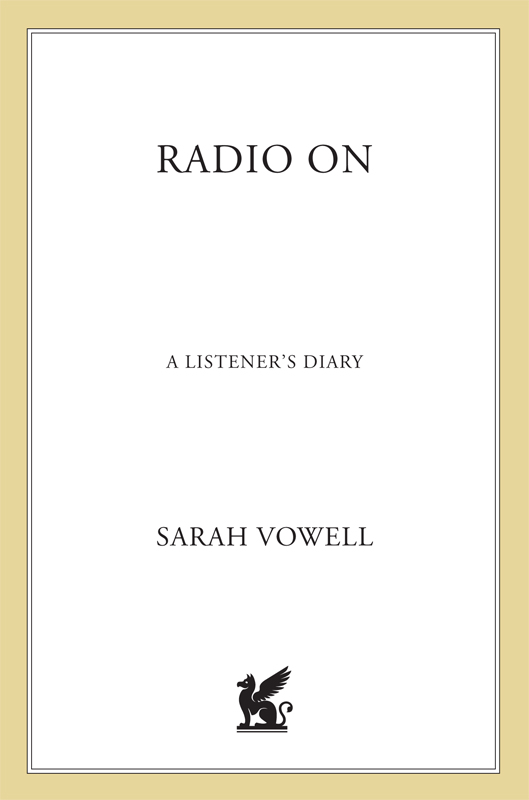
The author and publisher have provided this e-book to you for your personal use only. You may not make this e-book publicly available in any way. Copyright infringement is against the law. If you believe the copy of this e-book you are reading infringes on the authors copyright, please notify the publisher at: us.macmillanusa.com/piracy.
Contents
to my mother, my father, and my sister
JOURNALIST Didnt you have anything on?
MARILYN MONROE I had the radio on.
introduction
Radio is a landscape, a place inhabited by heroes and villains. And I should know. I spent a year in the broadcast badlands of 1995, which is 325 days longer than Christ suffered in the wilderness (and he didnt have to take notes). But this book is not just a road map of radioland, but of love and hate. My love. My hate. I was twenty-five years old.
I had been living in San Francisco, working at a gallery and writing for art magazines. An assignment to review a collection of essays called Radiotext(e), edited by Neil Strauss, got me thinking. Strauss opens his introduction with these words: You will never understand radio by listening to it.
In some ways, he was right. The more I read about radios possibilitiestheories of what it could be or dothe less I tuned in to the real-life black box, that dreary, intelligence-insulting, ugly, half-assed, audio compromise lorded over by the stultifying FCC. But if Strauss wasnt listening, and I wasnt listening, someone was. Someone with a vote. In those horrifying days after the 1994 congressional elections, people started pointing at conservative talk radio as the major force which fueled the so-called Republican Revolution that gave the right wing a majority for the first time in four decades. I began to understand what Bob Dylan meant when he sang, Is there a hole for me to get sick in?
Then I noticed that no one was keeping score: While American magazines and newspapers employ armies of critics to dissect the content and influence of television, movies, art, and music, radio is rarely covered. Its presence is intimated with skeletal listings that cant begin to hint at the mediums diversity. Glancing at the Radio Highlights section of any metropolitan daily, youd think that all we hear is Puccini or public policyRush Limbaugh was never born and Kurt Cobain never died.
More than simply confronting programming, I wanted to dig deeper, to think about how one listens to the radio, or at least how I listen. Hence the diary format. Sometimes, all of America seemed to be hashing it out inside my stereo. Just as often, a song, a voice, or a throwaway remark sparked a memory or spoke to a newspaper in my hands in such a way that I felt less alone. Then again, the venom and mediocrity got to me, leaving me deeply sad. There were days that I carried around my sense of humor like a picket sign.
In order to help the reader to decipher my personal geography, a few David Copperfield facts. First, a confession: I do not know how to drive. While many peoples radio memories are bound to their automobiles, mine are not. A hick twice over, I grew up in Oklahoma and Montana, graduated from Montana State (where I did college radio, of which more later), and in the course of this book, moved from San Francisco to Chicago, where I attended a graduate program in modern art history at the School of the Art Institute. As a student/freelance writer, I kept very irregular hours. Thus, the famous drive time had little bearing on my listening. These other occupationstaking seminars with titles like Anti-art Since the 60s, writing book and record reviews, and teaching first-year students about Roman architecturenot only saved my soul, they made the radio a part of a life, not a separation from it.
As you can imagine, I heard a lot of crapnumbing, malevolent examples of the worst kinds of filth. This why I often joked to myself that the books title would be Amber Waves of Pain. Eventually, however, I settled in with some friendly voices: Ian Brown and Ira Glass redeemed public radio; Reverend Ivan Stang of the Church of the SubGenius became a beloved weirdo; writers Bill Wyman and Jim DeRogatis routinely bit the evil hands that fed them; and Courtney Love, more than anyone, screamed how I felt.
But it is Cobain who haunts the wasteland most of all, which is why we begin with a ghost story.
A Note on the Paperback Edition
Lately, it seems like years take on the weight of decades, which is why 1995 feels more like twenty years ago instead of two. And if the following pages faithfully capture the mean spirit of that year, then this distance is no bad thing. When I asked a friend how to introduce this paperback edition, he said in one breath, Why dont you just say that people still listen to Rush Limbaugh, even though they no longer talk about him, and Bill Clinton still cant get a break. The end. The thing is, listening to the radio every day in 1995 has probably lowered my standards of public lifeto the point that not reading Rushs name in the paper every morning strikes me as a solid improvement. And two years ago, I seriously thought Id now be living in a country with a president named Newt.
People ask me if radio has changed, but I couldnt really say. I dontcantlisten much anymore, though I still have enough faith in the idea of public radio to contribute stories to This American Life. Some of these pieces have even been replayed, to my surprise, on All Things Considered, a target herein. So Ive decided that National Public Radio is just like capitalism: It will suck every dissenting voice into its vortex and claim it as its own.
As for Kurt Cobain, his voice sounds as present tense as ever, but his status as an oldies icon grows likelier every day. Like John Lennon and Elvis before him, hell always be on the radio, just like hell always be dead.
Sarah Vowell
Chicago, July 1997
prologue
COPPING A FEEL IN 94
San Francisco
December 31, 1994.
11 a.m.7 p.m. KITS-FM.
Number 23. Thats it. Decent, but not monumental. The song on the radio is Nirvanas About a Girl. It was the loveliest, safest piece on their otherwise jagged first album, Bleach, and this year it is the sunniest cut on their dark beauty Unplugged in New York.
Packing up, looking backDecember 31 is the sappiest day of the year. To stuff whats left of my belongings into cardboard boxes, to move, is always an exercise in nostalgia; but today I have a soundtrack for it: the KITS-FM 1994 Modern Rock Countdown. Live 105, as this alternative commercial station is known, advertises itself in a deep monster voice as the modern rock revolution and is playing what it deems to be the top 105 rock n roll anthems of the past twelve months.
Trudging through a checklist with good (but not great) songs by the likes of Sonic Youth, Pavement, and R.E.M., 1994 sounds downright respectable, polished, just fine, cool. The thrilling lurch of the Beastie Boys Sabotage and Courtney Loves gritty wails on Holes Doll Parts excepted, if this is revolution, long live the King. In this forum, even Nirvana sounds wholesome. But sometimes, as a friend always tells me when Im going soft, nice just doesnt cut it.
To Live 105, About a Girl is just a number, twenty-three to be exact. The DJ plays it without commentary, not even a word about the voice from the grave that sings it. The catchy-but-nothing-special pop group Weezer merits more talk time, probably because they played at the stations listener appreciation Halloween concert at the Fillmore. It was the station I turned to on the afternoon of April 8 to confirm the hearsay of Nirvana songwriter Kurt Cobains suicide. I got drunk to it, singed my hair to it (as I lit up cigarettes on the gas stove), and turned up All Apologies full blast so that I didnt have to hear the sound of my own weeping for a man I never even met. Today, though, I guess they want to keep it light.



